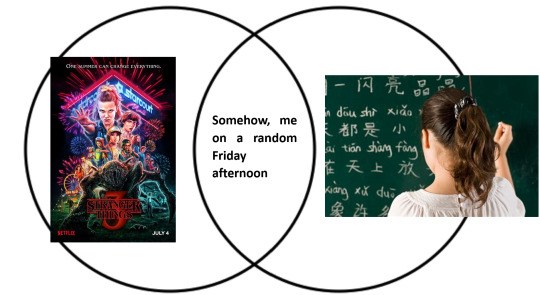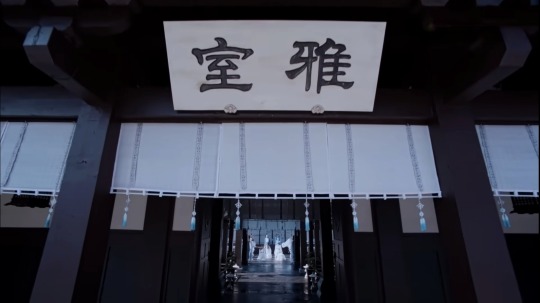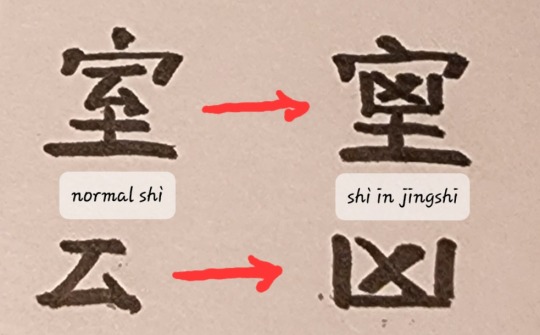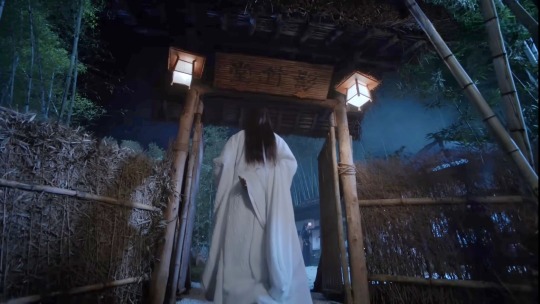#Mandarin Vocabulary
Explore tagged Tumblr posts
Text
Speak DECENT CHINESE in 4 months - 8 easy tips
______
1. Have someone to guide you to get good pronunciation habits. It is almost impossible to re-learn bad habits later so make sure you get your pronunciation right from the beginning. I mean the pronunciation of the sounds, not the tones. Tones take more time to get used to and you can't rush it - but try the best you can. Some tutors don't bother too much about the pronunciation so make sure you find someone who is strict about that, you will be grateful later. Also get confident in pinyin, you will need it.
2. Understand the composition of the sentences. The word order is super easy and it stays the same all the time (the question and informative sentences have the same word order). I have a formula for the word order but I won't reveal it here, it is one of the secrets I keep for my students and people who use my materials.
3. Understand that there are no tenses in the sense we think about them in English and other languages. Learn to express future, potential future, finished action, change of state, experience in the past and circumstances of the event. See the difference between action verbs and verbs of state.
4. Learn to use modal verbs and conjuctions.
5. Build usable vocabulary based on the fact that everything in Chinese is interconnected.
6. Understand 就, 才,的 and 得
7. Don't learn grammar rules and words separately. Learn functional practical sentences that will serve you as examples of the grammar structures (then you just need to change the words in these sentences).
8. Develop your listening skills - that is very important. For that there are Youtube channels and podcasts on Spotify (and in my materials the audio part also plays an important role). You can listen to Chinese radio stations just to get the feeling of the language.
______
After 3-4 months you should feel pretty confident in normal conversations if you study regularly under competent guidance.
______
R-evolutionary learning materials and resources: https://chineseffect.com
MAGIC PLAYBOOK for beginners
#learn chinese#learn mandarin#chinese langblr#mandarin langblr#edublr#mandarin#chinese#mandarin edublr#langblr#chinese vocabulary#mandarin chinese#chinese edublr#learning mandarin#learning chinese#study chinese#mandarin vocabulary#study mandarin#汉语#chinese studyblr#beginners chinese#chinese for beginners#learning tips#chinese tips#mandarin tips
308 notes
·
View notes
Text
The 然's
突然,虽然,忽然. and the other 然's can often get mixed up, so here's a quick explanation of some of the most common ones!
突然 (Túrán): This means suddenly or unexpectedly
居然 (Jūrán): This kind of means suddenly, but more in the sense of "surprisingly" or to suggest disbelief at something that happened.
忽然 (Hūrán): This also means suddenly or unexpectedly, but it has a more stronger connotation.
既然 (Jìrán): This is a conjunction meaning "since" or "now that"
既然the weather is great, let's go out!
既然 you aren't busy, let's go watch a movie.
不然 (Bùrán): This means "otherwise" or "or else";
You should study, 不然 you won't do well on the exam.
虽然 (Suīrán): This means although or even though.
虽然 I'm not good at singing, I still like to go to the karaoke.
当然 (Dāngrán): 当然 means certainly or definitely and can be used as a reply:
Can you help me with A? 当然!
自然 (Zìrán): This can mean nature or naturally.
China's 自然 is very beautiful.
She speaks Chinese 得很自然.
仍然 (Réngrán): This can mean "still" or "yet".
I仍然 haven't read that book.
依然 (Yīrán): Similar to 仍然, this also means still" or "yet" but it's usually used in more formal and literary works, whereas 仍然 is more often used in spoken language.
果然 (Guǒrán): 果然 can be used to mean "indeed" or "as expected"
This movie is 果然 interesting.
竟然 (Jìngrán): This is an adverb used to suggest surprise or something unexpected.
He竟然forgot her birthday.
显然 (Xiǎnrán): This means "clearly" or "obviously".
This soup 显然 hot.
偶然 (Ǒurán): This means "accidentally" or "by chance".
We 偶然 met at the same cafe.
How many other 然's do you know about? Drop a comment!
#slavic roots western mind#student life#student#study blog#college#college life#travel blog#aesthetic#studyblr#study motivation#chinese#china#study in china#life in china#learn chinese#chinese grammar#grammar#vocabulary#chinese vocabulary#chinese verbs#verbs#verb#chinese studyblr#mandarin langblr#mandarin#mandarin chinese#chinese language#language learning#chinese langblr#language resources
347 notes
·
View notes
Text
小王子 The Little Prince ✎ 生詞 002

著: 安東尼・聖修伯里 / 譯: 墨丸 生詞 002 (第一章 Chapter 01)
描繪 (描绘) miáo huì — describe, depict, portray
長達 (长达) cháng dá — up to, to extend as long as
睡眠 (睡眠) shuì mián — sleep
歷險 (历险) lì xiǎn — go through adventures, experience dangers
叢林 (丛林) cóng lín — jungle, forest
冒險 (冒险) mào xiǎn — take risks or chances
幻想 (幻想) huàn xiǎng — illusion, fantasy
生平 (生平) shēng píng — all one's life, ever since one's birth
傑作 (杰作) jié zuò — masterpiece
巨蟒 (巨蟒) jù mǎng — python
吃飽喝足 chī bǎo hē zú —eat and drink one's fill
無所謂 wú suǒ wèi — indifferent, doesn't matter
#小王子#the little prince#langblr#studyblr#chinese langblr#mandarin langblr#chinese#mandarin chinese#learning languages#budinggou#learning chinese#chinese vocabulary#chinese vocab#mandarin vocab#study chinese#taiwanese#traditional mandarin
45 notes
·
View notes
Text
okay cor recapitulation 2024 cdrama roundup ranked by how much I personally enjoyed them
1- 莲花楼/Mysterious Lotus Casebook
I've said this a billion times but this one was a masterful mix of tragedy and humor. Easily the funniest one on this list, which is really important to me. I will admit that the antagonist is not as interesting as many others below, but I was enraptured with the story from beginning to end. Truly delicious amounts of dramatic irony. AND there was Fang Duobing.
2- 大梦归离/Fangs of Fortune
Easily the most visually stunning on this list. Cunt level off the charts. Although I did feel at times like the drama was a bit over the top, I loved the story so much that all is forgiven. I laughed I cried I threw up. Not actually but Zhuo Yichen's dry heaving DID at one point make me nauseous for real. 10/10.
3- 致命游戏/The Spirealm
I went into this knowing literally nothing and it blew me right up into the atmosphere. I was so charmed by it. I was laughing out loud and then immediately flinching in terror a second later. Astounding combination. It's like if Alice in Borderland and Guardian had a baby. And honestly I might have even liked it better than both.
There is a difference between "liked the story" and "lies awake thinking about the story" and these first three hit that second category for me.
4- 我的阿勒泰/To The Wonder
This one left me with a feeling of peace and stillness very different from these others. I loved all the little details. It had a way of leading you to sit with a small moment that was truly beautiful.
5- 长相思/Lost You Forever
I disliked part 2 so much that it makes it hard to remember how much I loved part 1, but I really did hamsterwheel this one. There was so much gender here we should not forget it. AND blood drinking. <3
6- 墨雨云间/The Double
I do love a good revenge story. The antagonist was more interesting than I gave her credit for at the time due to my emotional entanglement in said revenge story. I enjoyed it a normal amount.
7- 春花焰/Kill Me Love Me
I enjoyed some aspects (biting <3) but it shrimply did not ignite my soul. It DID star the most beautiful man in the world although that's just my onion.
8- 花开有时颓靡无声/Meet You At The Blossom
Unfortunately this one used like six plot devices I actively hate but I still did (mostly) finish it out of attachment to a few specific side characters. At one point I did feel compelled but I'm not sure I would say I enjoyed it generally. Sorry gay people.
9- 云之羽/My Journey To You
I will be honest I only cared about Shangguan Qian and pretty much no one else, so I didn't finish it. I will probably try and revisit at some point. For my wife Shangguan Qian. I love you. I miss you.
10- 少年歌行/The Blood of Youth
Sadly this one really didn't resonate with me at all. Which is sad because the most beautiful man in the world was bald. :( I see it compared to mlc and shl a lot but it didn't have that something something that those do imo. Perhaps I will revisit in the future.
#everything (new) i watched this year was a cdrama with one exception which was iwtv hehe#and so because of that my mandarin listening comprehension has increased a lot :)#i mean it's still bad but i'm in the point of language learning where youre like HEY!!!! I KNOW WHAT YOU'RE SAYING!!! type of glee#before the doom hits you (lack of vocabulary)#cor.txt#<- maybe i should actually keep track of my mini tumblr essays
22 notes
·
View notes
Photo
🚨VOCAB ALERT: Dog 🚨
Mandarin: 狗 gǒu / 犬 quǎn
Cantonese: 狗 gau2 / 犬 hyun2
Japanese: 犬 いぬ
Korean: 개
Indonesian: anjing
Russian: собака
Cherokee: ᎩᏟ gitli
Burmese: ခွေး hkway
Tibetan: ཁྱི khyi
Uyghur: ئىت it
Sinhala: බල්ලා ballā




whenever my friend sends a picture of her dogs i always compress them in mspaint
#mandarin vocabulary#chinese vocabulary#cantonese vocabulary#japanese vocabulary#korean vocabulary#indonesian vocabulary#russian vocabulary#cherokee vocabulary#burmese vocabulary#tibetan vocabulary#uyghur vocabulary#sinhala vocabulary
52K notes
·
View notes
Text
倒着 dàozhe
Upside down
Learned today while exchanging pictures of the full moon to wish happy mid-autumn festival; a classmate noticed that the moon seen from China is upside down compared to how we see it from Brazil.



巴西的月亮是倒着的。
#vocabulary#chinese language#moon#full moon#southern hemisphere#northern hemisphere#mid autumn festival#中秋节#月亮#chinese langblr#langblr#mandarin#中文
45 notes
·
View notes
Text

山很高,海很深 /shān hěn gāo, hǎi hěn shēn/
MOUNTAINS ARE HIGH, SEAS ARE DEEP
________
Beginner?
MAGIC PLAYBOOKS
Intermediate?
WORDPLAYS
FREE 12 DAY MANDARIN CHALLENGE
#chinese#mandarin#learn chinese#learn mandarin#chinese langblr#mandarin langblr#edublr#langblr#mandarin edublr#chinese vocabulary#mandarin chinese#chinese edublr#study chinese#learning chinese#learning mandarin#mandarin vocabulary#study mandarin#中文#汉语#chinese studyblr#mountain#mountains#sea#scenery#nature#daoism#dao
25 notes
·
View notes
Text

to send mandar
Imagine a high government official in China: a mandarin, sending a crate of very rare mandarins. Or: ‘The Mandarin’ in the Iron Man 3 movie (played by Ben Kingsley) sending these precious mandarins,.. or crating a Mandarin Duck.
He sent me a present. Me mandó un regalo.
Picture by Iryna Yeroshko on Flickr
#send#to send#mandar#mandarin#the mandarin#iron man#mandarin duck#duck#spanish#vocabulary#vocab#español#hint#mem#mnemonic#wotd#word of the day
16 notes
·
View notes
Text
Japanese word of the day
ねこ (Hiragana)
描 (Kanji)
Meaning: cat 🐱
Pronunciation: ne-ko

Kanji breakdown:
The kanji for cat is borrowed from Mandarin and can be broken down in these parts: the right side of the kanji "苗 (なえ)" means "sapling" and the left side of the kanji 猫 translates to "ミョゥ" read as "myou" which is essentially the sound that cats make "meow"
this kanji basically means "meow sapling"
please feel free to add any other kanji detail I might've missed. This is my first time learning the kanji as well ~
いしょにべんきょうしましょう!!がんばってね!
Romanji - issho ni benkyo shimayou!! Ganbatte ne!
Translation - let's study together! do your best!
#japanese#learning japanese#japanese vocabulary#hiragana#japan#kanji#katakana#learn japanese#日本#anime#atarashii joushi wa do tennen#cats#neko#cats of tumblr#cute cats#Japanese cats#mandarin
44 notes
·
View notes
Text
圆虫 yuánchóng round worm
绦虫 tāochóng tape worm
跳蚤 tiàozao flea
蜱虫 píchóng tick
犬心丝虫 quǎnxīnsīchóng heartworm
12 notes
·
View notes
Text

STRANGER THINGS IN CHINESE -VOCAB LIST
so... i was bored and wanted to find some vocab list about stranger things in chinese but i couldn't find any... so I finally decided to go look for it myself on diverse chinese speaking websites who were talking about the show. I also used pleco for some more generic words usefull to speak about the show.
I hope some other people will also fit on my venn diagram of hyperfixation and find this list useful ^^
怪奇物語(guài qí wù yǔ)stranger things
颠倒世界(diān dǎo shì jiè)the upside down
夺心魔 (duó xīn mó)the mind flayer
魔狗 (mó gǒu) demodog
魔王 (mó wáng) demogorgon
魔蝙蝠 (mó biān fú) demobat
藤蔓 (téng wàn) the vines
怪兽 (guài shòu) the monster
维克那 (wéi kè nà) vecna
集���意识 (jí tǐ yì shí) the hive mind
火俱乐部 ( huǒ jù lè bù) the hellfire club
龙与地下城 (lóng yǔ dì xià chéng) dungeons and dragons
棒球棒 (bàng qiú bàng) baseball bat
圣诞灯 (shèng dàn dēng) christmas lights
纹身 (wén shēn) tattoo
失踪 (shī zōng) disappearance
杀 (shā) to kill
心灵感应 (xīn líng gǎn yīng) telekinesis
读心术 (dú xīn shù) telepathy
打电话 (dǎ diàn huà) to make a phone call
摩尔斯电码 (mó ěr sī diàn mǎ) morse code
对讲机 (duì jiǎng jī) walkie-talkie
俄国间谍 (é guó jiān dié) russian spy
实验品 (shí yàn pǐn) human experiment
星庭商场 (xīng tíng shāng cháng) starcourt mall
霍金斯实验室 ( huò jīn sī shí yàn shì) hawkins lab
门 (mén) the gate
#chinese langblr#chinese learning#stranger things#vocab list#chinese vocabulary#studyblr#mind flayer#demodog#demobats#demogorgon#vecna stranger things#the hellfire club#hawkins lab#joyce byers#will byers#eddie munson#steve harrington#eleven hopper#eleven stranger things#mike wheeler#dustin henderson#lucas sinclair#jim hopper#mandarin#language learning#中文#普通话#汉字#robin stranger things
23 notes
·
View notes
Text
I also tried to look for that mystery character without result. There must be a historical dictionary like OED for Chinese somewhere?
But I did find a gem which I perhaps wouldn't have learned from danmei otherwise:

腟 zhì vagina
So the character for vagina is 月 yuè (moon) + 室 shì (room).
Guys, I just now noticed one more interesting little detail in the Untamed!
You know the names of the buildings in the Cloud Recesses: the lecture room/hall Lanshi (兰室, Lánshì, "Orchid Room"); Yashi (雅室, Yǎshì, "Elegant Room") – the reception room/hall; the spirit-summoning room/hall Mingshi (冥室, Míngshì, "Underworld Room" or "Room of Darkness"); Hanshi (寒室, Hánshì, "Frost Room") - Lan Xichen's residence; and Lan Wangji's Jingshi (静室, Jìngshì, "Quiet Room"), right?
The character used to write the "shì", room, in the names is 室, here seen in the Lanshi and the Yashi (the names are read from right to left):


As a side note, the Lan seem to use the traditional rather than the simplified characters, so the "lán" in the Lanshi is written with 蘭 rather than 兰.
BUT. Not so in the Jingshi! Instead of the 室, a slightly different character is used for the "room":

My trusty dictionary did not know the character in question, so I started to look at what was different:

As such, the character 凶 (xiōng) means act of violence, murder, evil. An evildoer. A murderer. And as Lan Xichen told Wei Wuxian, we know who lived in the Jingshi before it became Lan Wangji's residence: "It is the place where our mother lived in the Cloud Recesses".

So, it seems that when the house became Madam Lan's prison, the character was changed to reflect her crime, denoting the place as the quiet room of a murderer. Accentuated by the reversed colours of the sign:

This has probably been quite self-evident to anyone who actually speaks and reads Chinese, but was quite an oooff! to me as I realised. One more killer detail in CQL 😟.
And while I was at it, I just had to check what it says above the gate (seen here when LWJ returns home with the Emperor's Smile):

As far as I can read it, the characters are 影竹堂 (yǐng zhú táng), which I freely translate as "Bamboo Shadow Court". An apt name for the place.

Hopefully it offered some solace to Madam Lan.
And oh, I just have to add! As Hanshi is the Sect Leader's residence, Lan Xichen is living in their father's house, while Lan Wangji is living in their mother's. And the two houses are more or less identical, down to the furnishings (just check the scene where Lan Xichen confronts Wen Chao and his muddy boots in ep8 vs. The Wangxian Scene in ep43). So did Qinghen-jun have the house built for his wife, identical to the house she was not allowed to live in? That is quite plausible, in universe. Out universe, they probably had only so many buildings to shoot in :).
#the untamed#language nerding#learning mandarin with the untamed#the untamed episode 43 spoilers#mandarin vocabulary#mandarin
782 notes
·
View notes
Text

today's vocabulary : 洗衣粉 [xǐ yī fěn]
#language#studyblr#langblr#chinese langblr#chinese studyblr#mandarin#learn mandarin#中文#汉语#chinese vocabulary#study chinese#chinese characters#mandarin chinese#studying chinese#china
33 notes
·
View notes
Text
T - Verbs in Chinese
Tackle (an issue) - 处理 (chǔlǐ)
Take - 拿 (ná)
Talk - 说 (shuō)
Target - 瞄准 (miáozhǔn)
Teach - 教 (jiāo)
Tell - 告诉 (gàosù)
Terminate - 终止 (zhōngzhǐ)
Testify - 作证 (zuòzhèng)
Thank - 感谢 (gǎnxiè)
Think - 想 (xiǎng)
Threaten - 威胁 (wēixié)
Throw - 扔 (rēng)
Tie - 系 (jì)
Tighten - 紧 (jǐn)
Tolerate - 容忍 (róngrěn)
Touch - 触摸 (chùmō)
Train - 训练 (xùnliàn)
Transfer - 转移 (zhuǎnyí)
Transform - 转变 (zhuǎnbiàn)
Translate - 翻译 (fānyì)
Transmit - 传送 (chuánsòng)
Travel - 旅行 (lǚxíng)
Tremble - 颤抖 (chàndǒu)
Trigger - 触发 (chùfā)
Trust - 信任 (xìnrèn)
Try - 尝试 (chángshì)
Type - 打字 (dǎzì)
#中文#chinese#汉语#learn chinese#mandarin langblr#mandarin#learn mandarin#china#studyblr#college life#student#study blog#travel blog#college#student life#slavic roots western mind#study in china#chinese characters#chinese language#汉字#study motivation#chinese langblr#aesthetic#chinese verbs#verb#verbs#vocabulary#vocab#language#linguistics
84 notes
·
View notes
Text
Words with 定 (HSK3-5)
决定 (juédìng) : to decide
规定 (guīdìng) : regulations, to stipulate
肯定 (kěndìng) : assuredly, to affirm
固定 (gùdìng) : fixed, to fasten
确定 (quèdìng) : to ensure, to confirm
稳定 (wěndìng) : stable, to pacify
制定 (zhìdìng) : to formulate
否定 (fo3udìng) : to negate, to reject
生活的态度决定了我们幸福感的高低。
既然明天晚上公司会关灯停电,那么我们肯定不用加班了。
成语有固定的结构。
56 notes
·
View notes
Text
小王子 The Little Prince ✎ 生詞 003

著: 安東尼・聖修伯里 / 譯: 墨丸 生詞 003 (第一章 Chapter 01) last vocab set of chapter 1~
科目 (科目) kē mùn — field of study
接連 (接连) jiē lián — in succession
沮喪 (沮丧) jǔ sàng — dejected, disheartened
角落 (角落) jiǎo luò — corner, nook
發揮 (发挥) fā huī — to display or exhibit
辨別 (辨别) biàn bié — differentiate, distinguish
嚴肅 (严肃) yán sù — serious, solemn, earnest
依然 (依然) yī rán — as before, unchanged
降低 (降低) jiàng dī — reduce, lower
#小王子#the little prince#langblr#studyblr#chinese langblr#mandarin langblr#chinese#mandarin chinese#learning languages#budinggou#learning chinese#chinese vocabulary#chinese vocab#mandarin vocab#study chinese#taiwanese#traditional mandarin
8 notes
·
View notes